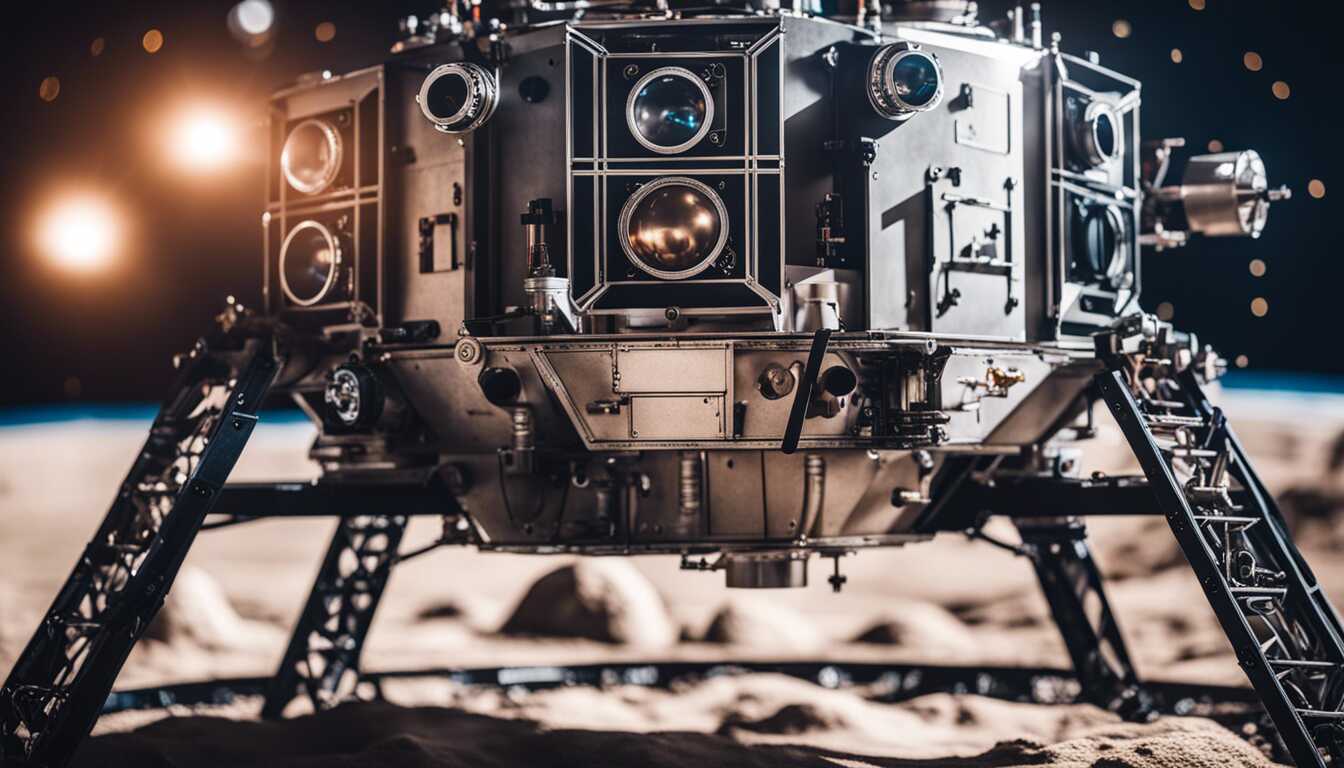
Intuitive Machines Attempts First American Lunar Landing Since Apollo Era

Intuitive Machines, a Houston-based company, is preparing for a historic moment as it attempts the first American lunar landing since the Apollo era. The mission, known as IM-1, aims to softly touch down near the moon's south pole, a feat that could mark a significant milestone in the modern space race.
The livestream of the event is set to begin at 5 p.m. ET, building anticipation as the company prepares for the historic landing. The spacecraft has been providing positive readings, with all systems performing as expected in the minutes leading up to the estimated landing time of about 6:24 p.m. ET. However, there is an expected delay between the landing and the confirmation of its success, as engineers will need time to assess the situation once the spacecraft touches down.
Mission and Progress
If successful, the company's Nova-C cargo lander, named "Odysseus," would secure its place in history as the first U.S. spacecraft to achieve a lunar landing since 1972. What makes this mission even more remarkable is the fact that it is being undertaken by a private company rather than a government agency. This groundbreaking attempt is a testament to the growing role of the private sector in space exploration.
The anticipation and progress of the IM-1 mission have not only captured the attention of space enthusiasts but have also had an impact on the stock market. Intuitive Machines' stock experienced an 11% decline in Thursday trading, closing at $8.28 a share. The fluctuation in the company's stock reflects the heightened investor interest and excitement surrounding the mission's progress.
The mission, which was launched on a SpaceX rocket on February 15, carries significant payloads, including six for NASA under an $118 million contract. The successful completion of the IM-1 mission would be a testament to the capabilities of private companies in facilitating space exploration and supporting government initiatives.
The IM-1 mission is not without its challenges, as evidenced by the recent setback experienced by Pittsburgh-based company Astrobotic. However, such setbacks are viewed as part of the learning process within NASA's Commercial Lunar Payload Services (CLPS) initiative, which aims to create a reliable framework for delivering science projects and cargo to the moon.
In the broader context of the modern space race, the IM-1 mission represents the latest American effort in a landscape where various nations, both allies and rivals, are investing in lunar programs. The mission also aligns with NASA's broader objective of paving the way for sustained human presence on the moon through its Artemis crew program.
While the IM-1 mission represents an important milestone for the United States, it is part of a larger global trend in lunar exploration. With nations such as Japan, China, and India making significant strides in their respective lunar programs, the quest for lunar exploration has become a truly international endeavor.
Looking ahead, NASA expects U.S. companies to undertake additional lunar missions in the near future, further underscoring the growing momentum in space exploration. At the same time, China is gearing up to launch its next lunar lander in May, highlighting the intense and dynamic nature of the modern space race.
The IM-1 mission by Intuitive Machines serves as a beacon of progress in the realm of space exploration, marking a significant step forward in advancing humanity's presence beyond Earth. As the livestream unfolds and the world watches with bated breath, the outcome of this historic lunar landing attempt will undoubtedly resonate throughout the realms of both space exploration and human achievement.
Share news















